There are three more instalments to go on this comprehensive list of my favourite feature films of the past 10 years. While the exact numbers and rankings are relatively arbitrary, the fact that these films are sitting in my top 75 films means I consider them really very good. They all come with my enthused recommendation.
 #75: Arctic (2018, Iceland, USA. d. Joe Penna.)
#75: Arctic (2018, Iceland, USA. d. Joe Penna.)
Mads Mikkelsen (Casino Royale) stars as the sole survivor of a plane crash somewhere in the Arctic Circle. When a helicopter also crashes nearby, he finds one badly injured survivor – and makes it is mission to take them to safety. Arctic is a quiet, lonely, and quite astonishingly intense thriller, in which one man drags a critically hurt woman through the wilderness, facing ravines, the cold, starvation, and a hungry polar bear along the way. It is a tiny, brilliantly powerful piece of work: terrifying, inspiring, and heartbreaking.
 #74: Another Child (2019, South Korea. d. Kim Yook-seok)
#74: Another Child (2019, South Korea. d. Kim Yook-seok)
Two high schoolers who despise each other discover one’s father has had an affair and got the other’s mother pregnant. It sounds like soap opera fodder, but instead it’s an opportunity for a remarkable character drama about faulty people having to answer to terrible life choices. This is the debut for director Kim Yook-seok, and demonstrates an absolutely world of promise.
 #73: Cop Car (2015, USA. d. Jon Watts.)
#73: Cop Car (2015, USA. d. Jon Watts.)
Two tearaway kids steal an unattended police car, not realising its corrupt driver (Kevin Bacon) has stored a dead body inside. This low-budget thriller keeps things modest and realistic, but also presents a superb line in the absurd. Kevin Bacon is pretty much always excellent, but really makes a strong impression here. The film’s two juvenile leads, James Freedson Jackson and Hays Wellford, are also wonderful. Director Jon Watts went on to direct the last two Spider-Man features for Sony.
 #72: Marlina the Murderer in Four Acts (2017, Indonesia. d. Mouly Surya.)
#72: Marlina the Murderer in Four Acts (2017, Indonesia. d. Mouly Surya.)
This contemporary Indonesian neo-western sees the titular Marlina be robbed and sexually assaulted, before murdering her assailants and heading into town to report the crimes. While Marlina is haunted by the ghost of one of the criminals, two of his friends chase after her to enact revenge. This is a film was a great formal structure and pace, and a strong central performance by Marsha Timothy. It’s smart, original, and truly distinctive.
 #71: The Grandmaster (2013, Hong Kong, China. d. Wong Kar-wai.)
#71: The Grandmaster (2013, Hong Kong, China. d. Wong Kar-wai.)
The life of martial artist Ip Man (Tony Leung Chiu-wai) is thrown into turmoil when he is selected by his peers to fight northern master Gong Yutian (Wang Qingxiang). The life of Ip Man has been profiled through four great action films starring Donnie Yen. This unrelated project from writer/director Wong Kar-wai tackles the real-life martial arts legend in a near-arthouse fashion. Yen’s efforts, which were directed by Wilson Yip, provide great action sequences. Wong’s version here is a visual and tonal masterpiece; both aesthetically and emotionally beautiful. There are two editions out there: one for Hong Kong and one for the USA. Watch the Hong Kong version.
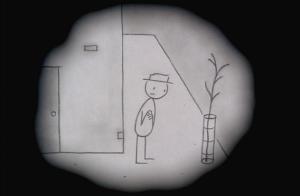 #70: It’s Such a Beautiful Day (2012, USA. d. Don Hertzfeldt.)
#70: It’s Such a Beautiful Day (2012, USA. d. Don Hertzfeldt.)
Acclaimed animator Don Hertzfeldt used the early years of the 2010s to expand from making bitingly funny short films to this absolutely outstanding short feature: haunting, melancholic, and deeply weird, It’s Such a Beautiful Day is one of the best animated films of the decade. Hertzfeldt is a one-of-a-kind talent, so it is no surprise to see him develop this one-of-a-kind film. Original doesn’t sufficiently cover it.
 #69: The Tale of Princess Kaguya (2013, Japan. d. Isao Takahata.)
#69: The Tale of Princess Kaguya (2013, Japan. d. Isao Takahata.)
Of the two main directors of Studio Ghibli’s anime features, Hayao Miyazaki was the populist storyteller and Isao Takahata was the experimental filmmaker. All of Takahata’s films (including Pon Poko and My Neighbors the Yamadas) differed from one another in style and content. His final work before his untimely death was The Tale of the Princess Kaguya: based on popular Japanese folklore, animated like a classical ink painting in motion, and gifted with enormous lightness and charm. It is his most complex and, to my mind, very best work.
 #68: Three Billboards Outside Ebbing, Missouri (2017, USA. d. Martin McDonagh.)
#68: Three Billboards Outside Ebbing, Missouri (2017, USA. d. Martin McDonagh.)
Martin McDonagh’s mournful, unexpected drama packs a huge punch. When her daughter’s murder remains unsolved, Ebbing local Mildred Hayes (Frances McDormand) books out three billboards on the road into town and has them decorated with captions ridiculing police inaction. An outstanding cast that also includes Woody Harrelsen, Peter Dinklage, and Sam Rockwell ensure this is pretty much the finest-performed American film of its year, while McDonagh’s screenplay includes more than one pitch-perfect surprise.
 #67: BlacKkKlansman (2018, USA. d. Spike Lee.)
#67: BlacKkKlansman (2018, USA. d. Spike Lee.)
A huge commercial hit for Lee, whose films are usually lucky to see the inside of an independent cinema. It is also a tremendously entertaining piece of work, depicting a black police officer who teams up with a Jewish colleague to infiltrate the Ku Klux Klan. Brilliant acting by John David Washington and Adam Driver pushes forward a lead, self-aware story. It is much, much funnier than I was expecting, and that helps balance the film’s darker moments.
 #66: Run (2014, Cote d’Ivoire, France. d. Philippe Lacôte.)
#66: Run (2014, Cote d’Ivoire, France. d. Philippe Lacôte.)
Philippe Lacôte’s unsettling Ivorian drama follows the life of Run (Abdoul Karim Konaté), who trains as a sorcerer’s apprentice, travels as an entertainer and – as the film’s opening sequence makes no attempt to hide – assassinates the Prime Minister. The most surprising part of this excellent African film is its touch of magical realism, that effortlessly pushes it beyond the matter-of-fact and into something remarkable. If there is something worth hoping for in the coming decade of cinema, it’s improved international distribution of African movies.
 #65: Confessions (2010, Japan. d. Tetsuya Nakashima.)
#65: Confessions (2010, Japan. d. Tetsuya Nakashima.)
In a lengthy opening monologue a high school teacher (Takako Matsu) informs her class that her daughter has been murdered, that she knows students in the room killer her, and that she has infected the milk they just drank with HIV. It is a deliberately over-the-top and lurid opening to an increasing disturbed thriller, which unfolds both from this point and in flashback. The blunt amoral cruelty of the film is inescapable, and makes it a proper love/hate proposition. Takako Matsu is sensational in the lead.
 #64: Frozen (2013, USA. d. Chris Buck and Jennifer Lee.)
#64: Frozen (2013, USA. d. Chris Buck and Jennifer Lee.)
For a lot of parents around the world, I suspect if they never hear the song “Let It Go” again it would be a happy day – so overwhelming was the cultural presence of this Walt Disney Pictures animation. The thing is, it’s a properly great song, and it comes midway through a properly good children’s film. Beautiful design and dialogue, and a refreshing shift on classic Disney tropes, combines to make something really quite memorable and enchanting. This is a testament to the strength of Disney’s second animation renaissance.
 #63: 10 Cloverfield Lane (2016, USA. d. Dan Trachtenberg.)
#63: 10 Cloverfield Lane (2016, USA. d. Dan Trachtenberg.)
In one of the more unexpected sequels of the decade, 10 Cloverfield Lane follows the 2008 monster movie Cloverfield in that it’s a similar surprise release, with little advance notice or publicity, and that it embraces the horror genre, but is otherwise completely its own thing. A young woman (Mary Elizabeth Winstead) is knocked out cold in a car accident and wakes to find herself trapped in an underground bunker with an obsessive survivalist (John Goodman) who claims civilization above has collapsed. It’s a knockout thriller, dominated by Goodman’s deadly serious performance, and builds level upon level of paranoia as it goes.
 #62: Tigers Are Not Afraid (2017, Mexico. d. Issa López.)
#62: Tigers Are Not Afraid (2017, Mexico. d. Issa López.)
A Mexican girl living among violent drug wars moves onto the streets and into the company of a gang of child scavengers. Together they go on the run from a gangster whose gun they have stolen – but supernatural forces start to intervene. Tigers Are Not Afraid is a fantastic blend of Mexican crime film and supernatural thriller, fronted by a group of great juvenile actors, and filled with brilliantly staged moments of uneasy horror. It is a one-of-a-kind thriller, and directed with an enviable tightness by Issa López.
 #61: Spider-Man: Into the Spider-Verse (2018, USA. d. Peter Ramsey, Bob Persichetti, and Rodney Rothman.)
#61: Spider-Man: Into the Spider-Verse (2018, USA. d. Peter Ramsey, Bob Persichetti, and Rodney Rothman.)
Few I suspect had predicted that one of the very best Marvel Comics adaptations of the decade was going to be one not produced by Marvel Studios at all, but by producers Christopher Miller and Phil Lord (21 Jump Street). Into the Spider-Verse commits a cinematic miracle. Not only does it present a sharp and cutting-edge animation style, and not only does it cast a fantastic cast of voice actors (including Nicolas Cage), but it takes a potentially complicated story involved parallel universes and multiple different iterations on Spider-Man at the same time and emerges as one of the most emotive, engaging, and well-written superhero films of all time. Directors Ramsey, Persichetti, and Rothman deserve medals.
 #60: Les Miserables (2019, France. d. Ladj Ly.)
#60: Les Miserables (2019, France. d. Ladj Ly.)
A rookie police officer experiences his first day in a Parisian police anti-gang unit in Ladj Ly’s widely acclaimed and award-winning drama, set in the same Paris suburb as Victor Hugo’s Les Miserables. On its own merits it is a tightly made and powerful work, but it also presses on one of the most serious social crises in contemporary France. Racism, Islamophobia, and class are all high on the agenda and explored with clarity and a profound emotional force.
 #59: Inside Out (2015, USA. d. Pete Docter.)
#59: Inside Out (2015, USA. d. Pete Docter.)
The personified emotions of a trouble child run wildly out of control in Peter Docter’s emotionally powerful and beautifully abstracted Inside Out. In typical Pixar style, a complex idea – presenting one’s anger, disgust, happiness, and so on, as individual people living in one’s brain – is made simple and profound. It has a combination of comedy, drama, and action, but at its core this is a film that lets kids know that it is okay to be sad. It feels like something more than a children’s animation. It feels important.
 #58: Snowpiercer (2013, South Korea, Czech Republic. d. Bong Joon-ho.)
#58: Snowpiercer (2013, South Korea, Czech Republic. d. Bong Joon-ho.)
Korean filmmaking wunderkind Bong Joon-ho adapts the French graphic novel Snowpiercer with a primarily American cast. The result seemed pretty divisive at the time. Bong brings a typically melodramatic style of Korean drama, and to their credit his cast (which includes Chris Evans, John Hurt, and Tilda Swinton) adapts to it brilliantly. There is a lot of allegory at work here, and emotional power, and in a key moment one of the most effective and brutal action scenes of the decade. This is one of the most powerful science fiction films of recent years.
 #57: Star Wars: The Force Awakens (2015, USA. d. J,.J. Abrams.)
#57: Star Wars: The Force Awakens (2015, USA. d. J,.J. Abrams.)
Against all expectations, Walt Disney Pictures bought Lucasfilm Ltd and made an all-new Star Wars trilogy. The Force Awakens copped some criticism for feeling like a remake of George Lucas’ original Star Wars (1977). It is a complaint with which I found little merit. For one thing, it embraces the similarity to get a mass audience back on side after the wobbly and divisive prequel trilogy (1999 to 2005). For another, it embraces the intended mythic repetition Lucas always intended. It looks phenomenal, thanks to strong photography and a preference for physical effects. It plays well too, thanks to some decade-best casting including Daisy Ridley, Adam Driver, Oscar Isaac, and John Boyega. This film made me feel like a child again, in the best possible way.
 #56: Bad Genius (2017, Thailand. d. Nattawut Poonpiriya.)
#56: Bad Genius (2017, Thailand. d. Nattawut Poonpiriya.)
Imagine an edge-of-your-seat heist thriller. Now imagine it’s directed by someone with the visual style of, perhaps, Danny Boyle. Then visualise it as a film made in Thailand. And finally consider it’s not about stealing money, but instead faking high school examination results for hundreds of rich university aspirants. That, essentially, is Nattawut Poonpiriya’s absolutely fantastic Bad Genius. Well acted, written, directed, and produced, as well as an unexpectedly provocative hit on upper social classes exploiting the lower ones.
 #55: Raw (2016, France, Belgium. d. Julia Ducournau.)
#55: Raw (2016, France, Belgium. d. Julia Ducournau.)
A young veterinary science student (Garance Marillier) suffers fierce bullying in her first year of university – only to develop a new obsession. Julia Ducournau’s bloody horror film feels sharply original and effective, with a number of dreadful shocks and sequences and no small amount of gut-wrenching body horror. It is also a palpably feminist work, using its confronting elements to actually interrogate issues of gender, sexuality, identity and body image. This is absolutely among the very best horror films of the decade.
 #54: John Carter (2012, USA. d. Andrew Stanton.)
#54: John Carter (2012, USA. d. Andrew Stanton.)
The opening act is as muddled as a blockbuster release can be – three prologues? – but once things settle down, Andrew Stanton’s live-action debut is a tremendous widescreen epic of flying ships, alien invaders, Martian kingdoms, and swashbuckling adventure. Burroughs’ original planetary romance gets darkened and updated to appeal to a 21st century audience, while state-of-the-art CGI helps to develop the ant-like Tharks and other inventive alien creatures. This was dreadfully maligned by critics on release, in the most deeply unfair manner. It’s tragic that we never got its two sequels.
 #53: Kaili Blues (2015, China. d. Bi Gan.)
#53: Kaili Blues (2015, China. d. Bi Gan.)
In the Chinese province of Guizhou, a local doctor journeys to find his abandoned nephew – falling into the past as he goes. Or something along those lines. Bi Gan’s dreamy, arthouse odyssey is one of those films that will be enchanting for some and maddening for others. Either way it’s memorable. Its highlight is absolutely superb: a 41-minute uninterrupted tracking shot along a road, up a path, across a bridge, and through an entire village. It is a fantastic moment in Chinese cinema.
 #52: The Guilty (2018, Denmark. d. Gustav Möller.)
#52: The Guilty (2018, Denmark. d. Gustav Möller.)
A Copenhagen police officer (Jacob Cedergren) works a phone line while under investigation for a shooting incident. When he receives a phone purporting to be from a kidnapping victim’s phone, he applies all of his inventiveness and experience in an attempt to secure her escape. The Guilty is an intelligent and frightening Scandinavian thriller told entirely from the point of view of one character, and which never actually leaves the telephone centre where he works. This artificial limitation works to director Gustav Möller’s advantage; this specific narrative could not be told any other way. It feels like a work of genius.
 #51: Shin Godzilla (2016, Japan. d. Hideaki Anno and Shinji Higuchi.)
#51: Shin Godzilla (2016, Japan. d. Hideaki Anno and Shinji Higuchi.)
The beauty of the original 1954 Godzilla was how it expressed Japanese social anxiety over atomic weapons in an abstract, science fictional form. That essentially fell by the wayside over the course of numerous sequels. Shin Godzilla brings the political element back in a palpable fashion, using the giant monster as an allegory for the 2011 Pacific Ocean tsunami and its resulting social crisis over government mismanagement and inaction. As a result, scenes of a rampaging Godzilla are surrounded by argumentative board meetings, demarcation disputes, in-fighting in committee meetings, and attempts to offload blame onto rival government departments. Some found the film boring; smarter audiences found it to be the most relevant Godzilla film since the original.

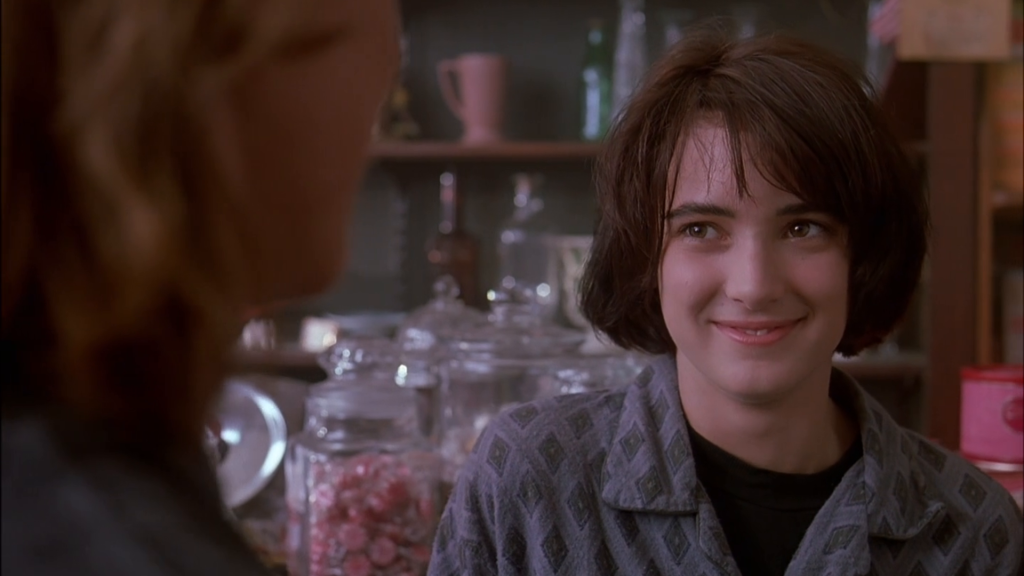
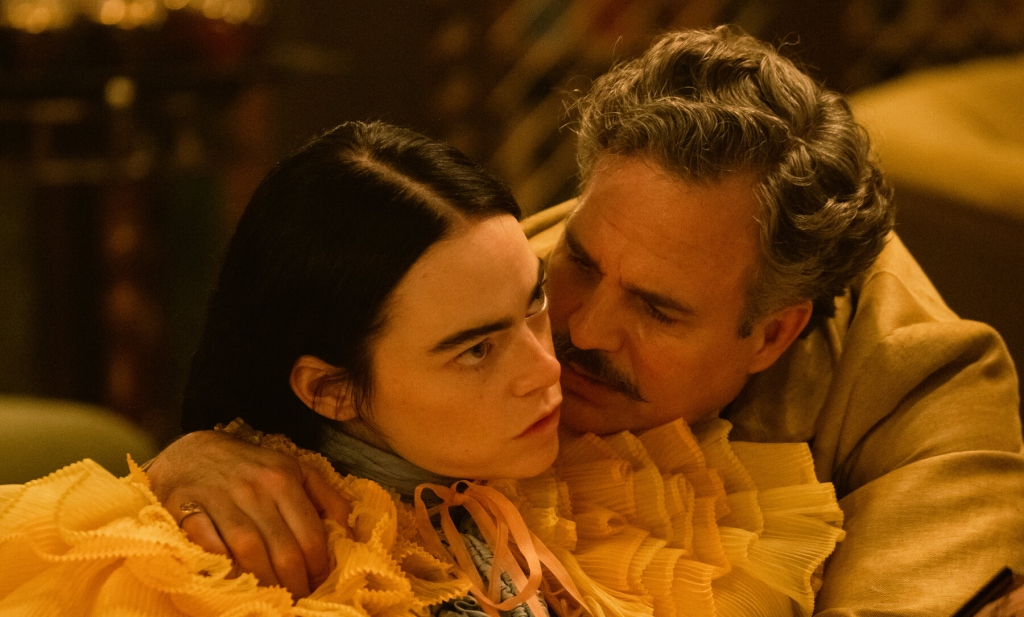
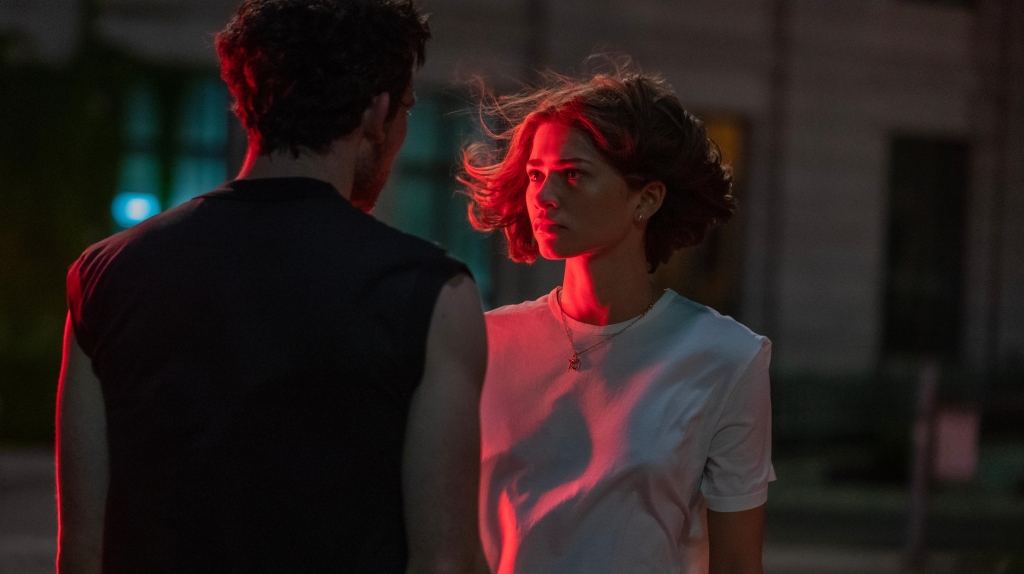
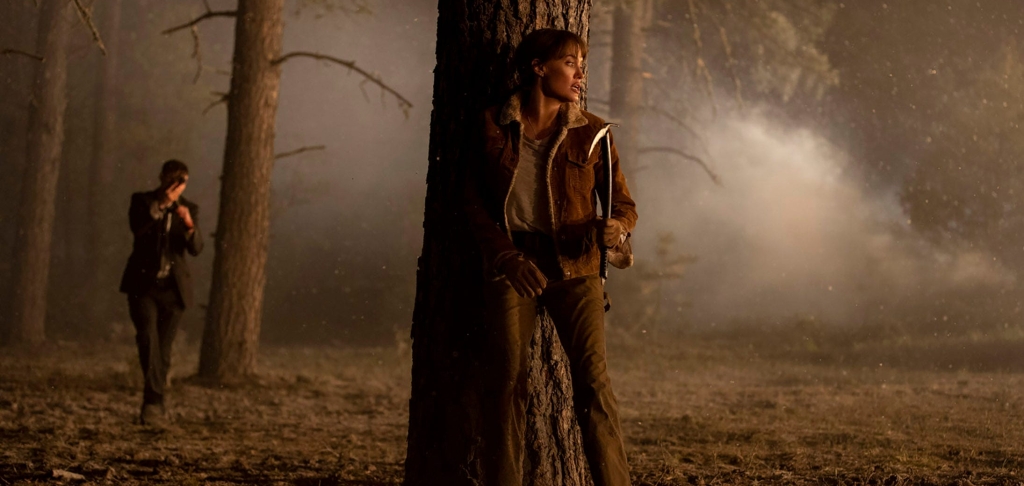
Leave a comment